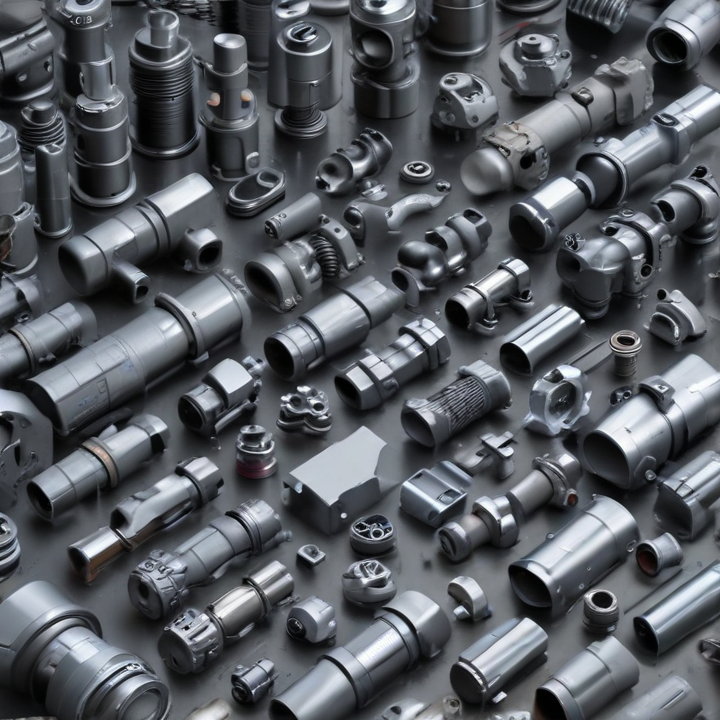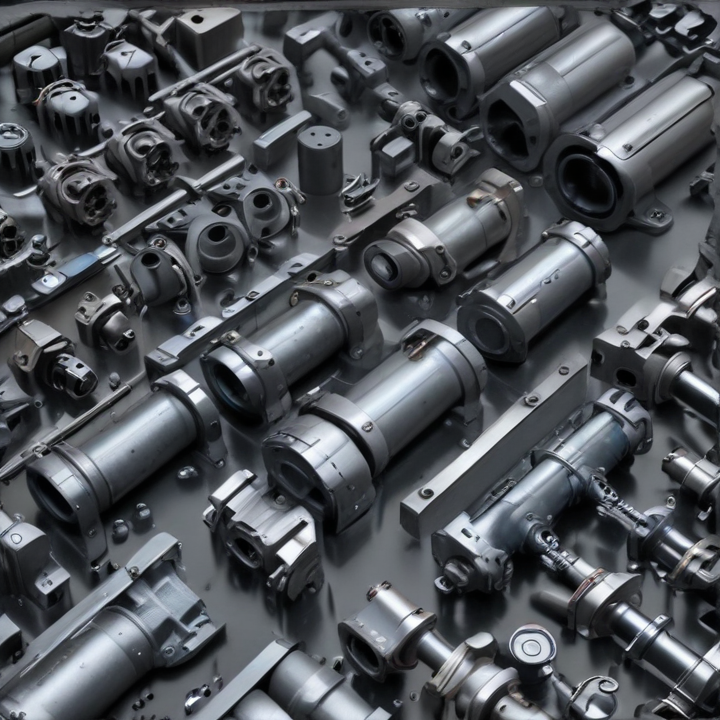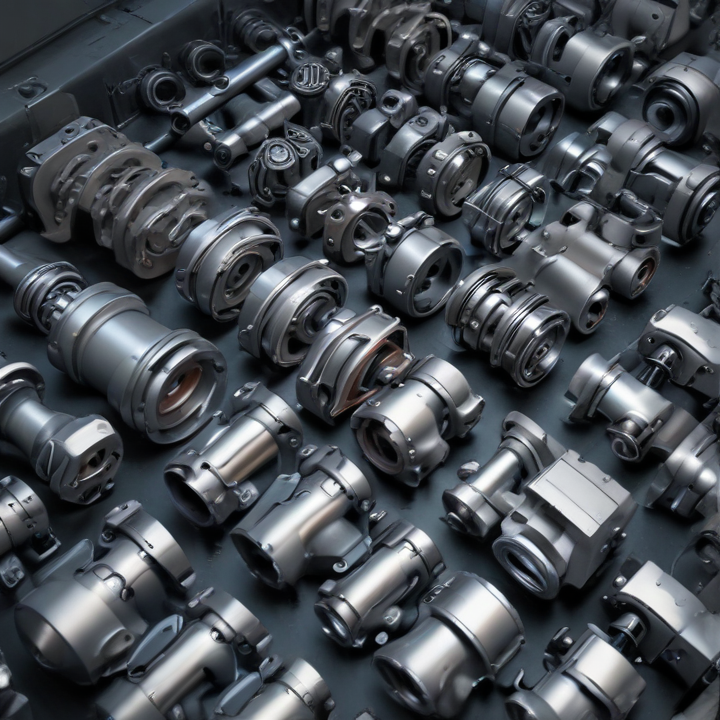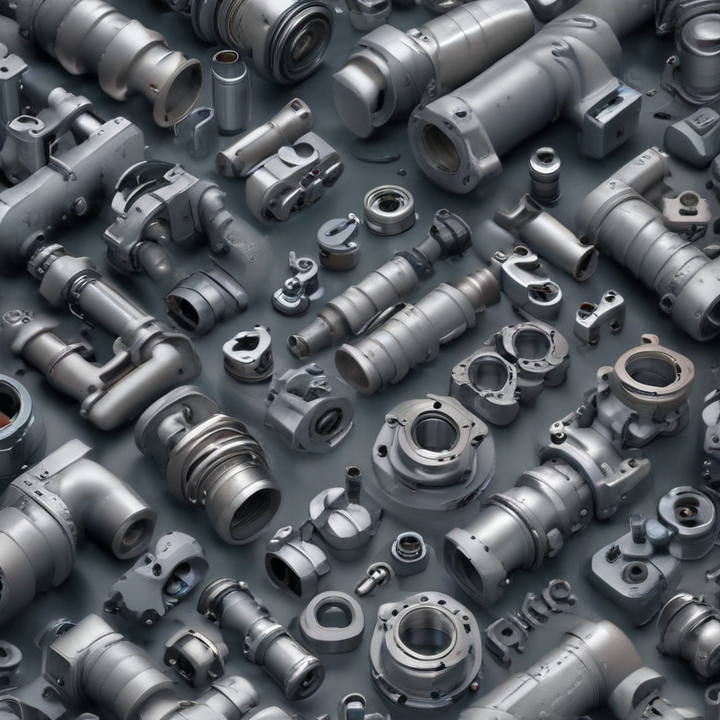hydraulic parts near me Safety Certifications
When searching for hydraulic parts near you, it is critical to prioritize safety certifications to ensure the components you buy meet industry-standard safety requirements. Here’s a brief overview of key safety certifications to look for:
1. ISO 9001: This international standard ensures companies have quality management systems in place. It guarantees that the hydraulic parts produced are reliable and meet customer and regulatory requirements.
2. ISO 4413: Specific to hydraulic fluid power systems and components, this standard outlines the general rules for safety, ensuring that the design and maintenance of hydraulic systems are safe and efficient.
3. CE Marking: For products sold within the European Economic Area, CE marking signifies compliance with health, safety, and environmental protection standards set by European Directives.
4. RoHS Compliance: Ensures that hydraulic components meet restrictions on the use of hazardous substances, promoting environmental and user safety.
5. UL Certification: Issued by Underwriters Laboratories, it indicates that the hydraulic parts have been tested and meet rigorous safety standards for operational performance and risk prevention.
To find trusted suppliers of these hydraulic parts near you, consider the following steps:
– Local Distributors: Search for local distributors with a good reputation and check reviews or get recommendations from industry peers.
– Online Directories: Use online directories and business listings for hydraulic equipment suppliers.
– Industry Trade Groups: Reach out to industry trade groups or associations as they often have directories of certified suppliers.
Always verify that the supplier can provide documentation or proof of the above certifications to ensure the utmost safety and quality of your hydraulic components.
List Reference Technical Parameters of “hydraulic parts near me”
When searching for “hydraulic parts near me,” understanding reference technical parameters can significantly guide you to the right components. Here are some essential parameters to consider:
1. Pressure Rating: Hydraulic parts, such as hoses, pumps, and cylinders, have specific pressure ratings (measured in PSI or bar). Ensure the components match your system’s working pressure to avoid failures.
2. Flow Rate: Measured in gallons per minute (GPM) or liters per minute (LPM), this parameter indicates the volume of hydraulic fluid a component can handle. Pumps and valves should be chosen based on the system’s flow requirements.
3. Temperature Range: Hydraulic equipment must operate efficiently within specific temperature ranges. Materials and designs should be compatible with the expected environmental and operational temperatures.
4. Size and Dimensions: Physical size, including length, diameter, and mounting specifications, is crucial. Ensure compatibility with existing system components to avoid installation issues.
5. Type of Fluid: Hydraulic systems use various fluids, including mineral oils, water-based fluids, and synthetic oils. Select parts that are chemically compatible with the intended hydraulic fluid.
6. Material: Components are made from different materials such as steel, stainless steel, aluminum, and composite plastics. The choice depends on factors like strength, weight, and corrosion resistance.
7. Seal Type: Sealing components vary, with options like O-rings, gaskets, and lip seals. Compatibility with the hydraulic fluid and operating conditions is critical for maintaining system integrity and preventing leaks.
8. Port Types and Sizes: Hydraulic parts feature various port configurations (e.g., NPT, BSP, SAE). Match the port types and sizes to existing fittings to maintain system compatibility.
Understanding these reference technical parameters will assist you in selecting the right hydraulic parts. Always consult the manufacturer’s specifications and guidelines, and consider professional advice to ensure compatibility and optimal performance.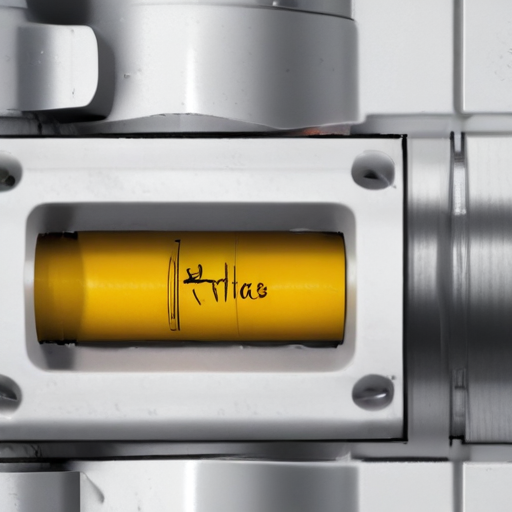
List Product features of “hydraulic parts near me”
When searching for hydraulic parts near you, either for machinery maintenance or system upgrades, look for the following crucial product features to ensure you’re getting high-quality components:
1. Compatibility: Ensure the parts can be seamlessly integrated with your existing hydraulic system. Compatibility with various brands and specifications is key.
2. Durability: High-grade materials such as hardened steel or corrosion-resistant alloys enhance longevity and performance. Choose parts known for withstanding high pressure and rough conditions.
3. Precision Engineering: Parts that are precision-engineered tend to offer better performance, smoother operation, and lower risk of leaks. Look for components made with advanced manufacturing techniques.
4. Certifications and Standards: Parts should adhere to industry standards such as ISO, ANSI, or SAE. Certified parts ensure reliability and safety.
5. Range of Products: A comprehensive selection including but not limited to hoses, fittings, cylinders, pumps, and motors allows for one-stop shopping and easier system assembly.
6. Pressure Ratings: Verify that the parts can handle the pressure levels required by your hydraulic system without failure.
7. Ease of Installation: Components that are designed for easy installation can help reduce downtime and maintenance costs. Look for features like quick-connect fittings.
8. Customer Support and Warranties: Reliable vendors offer robust customer support and warranties. This adds a layer of security knowing you’re covered in case of defects or issues.
9. Availability: Immediate availability can be crucial in urgent situations. Check the stock levels and lead times to avoid delays.
10. Cost-Effectiveness: While price should not compromise quality, competitive pricing is a desirable feature. Look for value-for-money options that do not skimp on essential qualities.
11. Reviews and Recommendations: Positive reviews and recommendations from other users provide insight into the performance and reliability of the parts.
By prioritizing these features, you can ensure that the hydraulic parts you select are reliable, efficient, and suitable for your specific needs.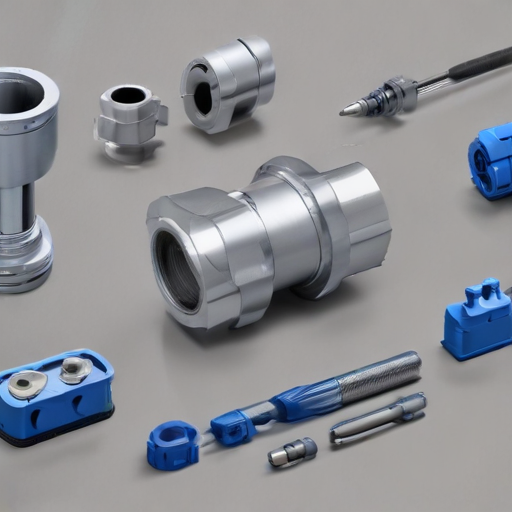
List Various Types of “hydraulic parts near me”
Certainly! Here’s a list of various types of hydraulic parts you can typically find nearby:
1. Hydraulic Pumps: Convert mechanical energy into hydraulic energy. Common types include gear pumps, vane pumps, and piston pumps.
2. Hydraulic Motors: Convert hydraulic energy into mechanical energy. Types include gear motors, vane motors, and piston motors.
3. Hydraulic Cylinders: Actuate movement in machinery by converting hydraulic energy back into mechanical form. Types include single-acting, double-acting, and telescopic cylinders.
4. Valves: Control the flow and pressure of hydraulic fluid. Types include directional control valves, pressure relief valves, and flow control valves.
5. Hydraulic Hoses: Flexible tubes that convey hydraulic fluids between components. Types include low-pressure, medium-pressure, and high-pressure hoses.
6. Fittings and Couplings: Connect various hydraulic components to ensure a leak-proof hydraulic system. Types include threaded, flanged, and quick-connect fittings.
7. Hydraulic Accumulators: Store hydraulic energy and release it when needed. Types include bladder, piston, and diaphragm accumulators.
8. Seals and O-rings: Prevent leaks in hydraulic systems. Made from various materials like nitrile, Viton, and silicone.
9. Filters: Remove contaminants from hydraulic fluid. Types include inline filters, tank-mounted filters, and spin-on filters.
10. Gauges and Sensors: Monitor pressure, temperature, and fluid levels within the system. Includes pressure gauges, temperature sensors, and level sensors.
11. Manifolds: Centralize control by connecting multiple hydraulic valves to a single block for simplified circuitry.
12. Reservoirs/Tanks: Store the hydraulic fluid that powers the system. Available in various sizes and materials.
13. Hydraulic Fluids: Essential for system operation, including oils, water-based fluids, and synthetic hydraulic fluids.
These parts are available at specialized hydraulic supply stores, hardware stores, or online retailers. Always ensure compatibility and quality by consulting with professionals or manufacturers.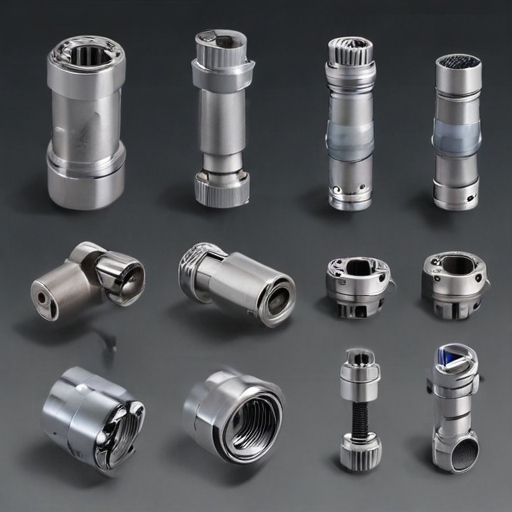
List Application of “hydraulic parts near me”
Searching for “hydraulic parts near me” can cater to a variety of needs across different industries and applications. Here are some common applications where local hydraulic parts suppliers can be beneficial:
1. Construction Equipment: Hydraulic systems are integral to machinery like excavators, bulldozers, and loaders. Local hydraulic parts suppliers can provide vital components such as pumps, motors, and cylinders to ensure these machines operate efficiently.
2. Agricultural Machinery: Tractors, harvesters, and other farm equipment rely heavily on hydraulics for various functions including lifting, steering, and implementing control. Access to nearby hydraulic parts can minimize downtime during critical planting and harvesting seasons.
3. Automotive Repair: Hydraulic systems are used in brakes, power steering, and suspension systems of vehicles. Auto repair shops may require quick access to hydraulic parts to provide timely service and repairs.
4. Industrial Machinery: Manufacturing and processing equipment often employ hydraulic systems for processes like molding, stamping, and material handling. Local parts suppliers can help maintain consistent production schedules by providing necessary hydraulic components.
5. Marine Applications: Boats and ships use hydraulic systems for steering, winches, and deck equipment. Nearby hydraulic parts suppliers can be crucial for maintaining marine operations without incurring delays.
6. Aerospace Engineering: Hydraulic systems in aircraft are responsible for landing gear, brakes, and flight control systems. Local suppliers can support maintenance operations and ensure airworthiness and safety.
7. Mining Operations: Heavy mining equipment like drills, loaders, and conveyors use hydraulic systems for their high power-to-weight ratios and efficiency. Having access to hydraulic parts locally can significantly reduce operational downtime in remote locations.
8. Renewable Energy: Wind turbines and hydroelectric dams utilize hydraulic systems for energy conversion and mechanical movements. Local suppliers can support the maintenance and upgrade of these systems for optimized performance.
By accessing hydraulic parts locally, businesses can enjoy faster procurement, reduced downtime, and enhanced operational efficiency across these varied applications.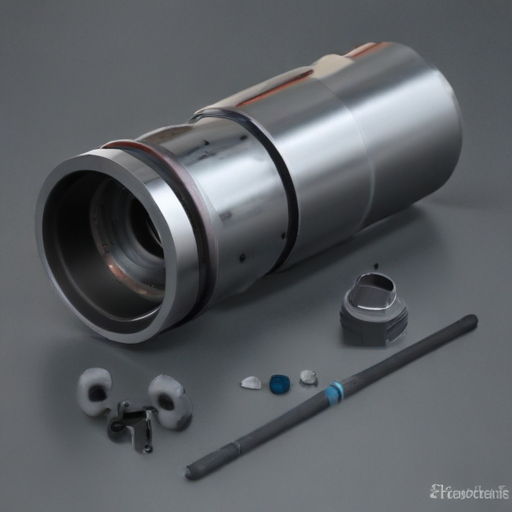
List Buyer Types of “hydraulic parts near me”
When discussing the potential buyers for “hydraulic parts near me,” it’s essential to recognize the diverse range of industries and individuals who may seek such components. Here are some common buyer types:
1. Construction Companies:
– These businesses require hydraulic parts for heavy machinery like excavators, bulldozers, and loaders. Ensuring operational efficiency and minimizing downtime is critical in their projects.
2. Manufacturing Plants:
– Factories often utilize hydraulic systems in their machinery for automation processes. They need a steady supply of hydraulic parts to maintain productivity and operational integrity.
3. Agricultural Firms:
– Farmers and agricultural enterprises use hydraulic systems in equipment like tractors, combine harvesters, and irrigation systems. Dependable hydraulic parts are vital for their day-to-day operations.
4. Automotive Workshops:
– Mechanics and auto repair shops frequently seek hydraulic parts for vehicles. These include power steering systems, brake systems, and hydraulic lifts.
5. Marine and Offshore Companies:
– This sector requires hydraulic parts for various marine applications, including cranes, winches, and steering gear used on ships and oil rigs.
6. Aerospace Industry:
– Hydraulic systems are crucial in aircraft for functions such as landing gear deployment and control surfaces. Aerospace companies demand high-precision hydraulic parts to ensure safety and reliability.
7. Heavy Equipment Rental Services:
– Companies that rent out heavy machinery need hydraulic parts to ensure their equipment remains in top condition and ready for the next rental.
8. Public Sector and Municipalities:
– Government agencies responsible for public infrastructure require hydraulic parts for maintenance and operations of equipment like road sweepers and snowplows.
9. DIY Enthusiasts and Hobbyists:
– Individuals working on personal projects or building custom machinery often seek hydraulic parts for their unique needs. They value accessibility and guidance in selecting the right components.
10. Hydraulic Service Companies:
– Specialized service providers or hydraulic system repair companies need a variety of parts to service and repair customer equipment efficiently.
Each of these buyer types requires specific hydraulic products tailored to their operational needs, emphasizing the importance of availability and reliability in the local market.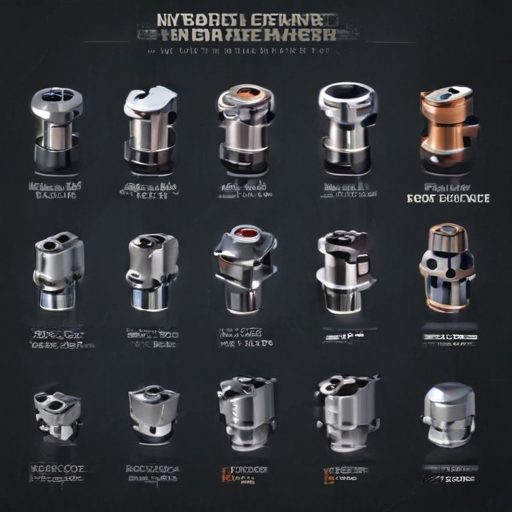
List “hydraulic parts near me” Project Types for Different Industries
Finding hydraulic parts near you can be crucial for various industries, each having unique project requirements. Here’s a quick overview of different project types that demand hydraulic components across various sectors:
1. Construction Industry:
– Excavation Projects: Hydraulic excavators require robust hydraulic cylinders and hoses.
– Building Erection: Hydraulic lifts and cranes need reliable pumps and valves.
2. Agriculture Industry:
– Tractor Operations: Hydraulic systems in tractors need strong hydraulic pumps and fittings.
– Irrigation Systems: Hydraulic actuators and controllers are essential for modern irrigation.
3. Manufacturing Industry:
– Automation Systems: Hydraulic pumps and cylinders drive automated production lines.
– Press Machinery: Hydraulic presses rely heavily on precise valves and seals.
4. Automotive Industry:
– Vehicle Repair: Hydraulic jacks and lifts are essential, requiring quality hydraulic fluid and cylinders.
– Production Lines: Hydraulic robots and assembly lines need pumps and motors.
5. Marine Industry:
– Shipbuilding: Hydraulic steering systems and winches require highly durable parts.
– Repair and Maintenance: Hydraulic tools and equipment onboard need regular replacement parts.
6. Mining Industry:
– Drilling Operations: Hydraulic drills and rigs need robust power packs and hoses.
– Material Handling: Hydraulic shovels and conveyors in mining require heavy-duty cylinders and seals.
7. Aerospace Industry:
– Aircraft Maintenance: Hydraulic landing gears and braking systems need precise valves and actuators.
– Manufacturing: Precision hydraulic presses and tools are used in aircraft assembly.
Sourcing hydraulic parts locally ensures quick turnaround times and reliable service, critical across these diverse industries. Depending on the specific needs of your project, ensure compatibility and durability to maintain optimal performance.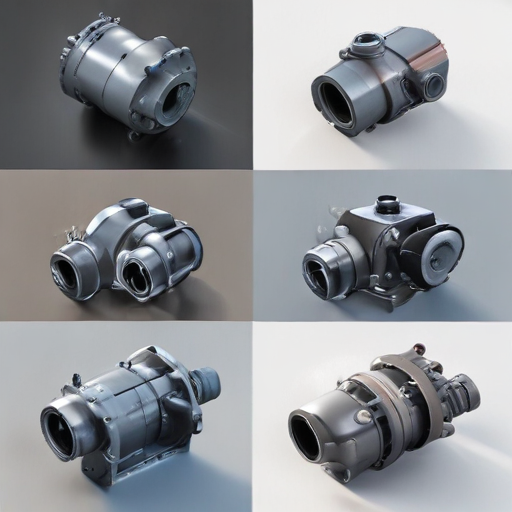
hydraulic parts near me Accessories Upgrades and Custom Manufacturing Options
Looking for hydraulic parts near you? From standard components to custom solutions, there are many options available to meet your specific needs. Hydraulic systems are vital in various industries, and having reliable parts can enhance performance and prolong the lifespan of your machinery.
Accessories and Upgrades
Many suppliers offer a wide range of hydraulic accessories such as hoses, fittings, couplings, and seals. These upgrades can optimize efficiency and safety. Upgrading to high-pressure hoses or quick-connect couplings can streamline maintenance tasks and reduce downtime. Filters and reservoirs can also be upgraded to improve system cleanliness and reliability.
Custom Manufacturing
If off-the-shelf products don’t meet your requirements, many vendors provide custom manufacturing options. You can get bespoke hydraulic cylinders, pumps, and valves designed to your exact specifications. Custom options can include specialized materials, unique sizes, and tailored performance criteria, ensuring that your hydraulic system operates at peak efficiency.
Finding Suppliers
Local suppliers with robust inventories and strong reputations for customer service can be the most convenient option. Use online directories or local business listings to find hydraulic parts suppliers nearby. Additionally, visiting a local supplier can provide immediate access to parts and personalized expert advice.
Conclusion
Whether you need standard hydraulic parts, accessories, upgrades, or custom-manufactured solutions, there are numerous options to explore. Investing in quality components and leveraging local resources can keep your hydraulic systems running smoothly and efficiently.
List Quality Control and The Manufacturing Process of “hydraulic parts near me”
Quality Control in Manufacturing Hydraulic Parts
1. Material Selection:
– Use high-quality raw materials to ensure durability and performance.
– Conduct material verification tests such as chemical composition analysis.
2. Precision Machining:
– Employ CNC machines for accurate and consistent dimensions.
– Regularly calibrate machining equipment to maintain tight tolerances.
3. Inspection of Components:
– Use Coordinate Measuring Machines (CMM) for precise measurements.
– Conduct visual inspections to identify surface defects.
4. Assembly Checks:
– Verify the correct fit of components through assembly trials.
– Use torque testing tools to ensure connections are secure.
5. Pressure and Leak Testing:
– Perform hydraulic pressure tests to ensure parts can withstand operational conditions.
– Use leak detection equipment to identify any potential areas of fluid leakage.
6. Heat Treatment:
– Apply heat treatment processes to enhance material strength and durability.
– Verify the hardness of treated components using Rockwell or Brinell hardness tests.
7. Documentation and Traceability:
– Maintain detailed records of inspection and testing results.
– Ensure each part has a traceable identification number for quality tracking.
Manufacturing Process of Hydraulic Parts
1. Design and Prototyping:
– Use CAD software to create accurate designs.
– Develop prototypes using 3D printing or initial machining.
2. Material Procurement:
– Source raw materials such as steel, aluminum, or composites.
– Validate material quality through supplier certifications.
3. Cutting and Shaping:
– Use laser cutting or water jet cutting to shape raw materials.
– Implement CNC machining for precise component shaping and threads.
4. Machining:
– Employ turning, milling, and drilling processes to achieve desired geometries.
– Utilize surface finishing techniques like grinding or honing for smooth surfaces.
5. Joining and Assembly:
– Weld or bolt components together using automated systems.
– Assemble machined parts according to specified layouts.
6. Surface Treatment:
– Apply coatings such as anodizing or powder coating for corrosion resistance.
– Conduct surface finishing processes like polishing.
7. Final Testing and Validation:
– Perform functional testing to ensure parts meet operational requirements.
– Inspect for final quality assurance before packaging.
8. Packaging and Distribution:
– Pack components securely to prevent damage during transit.
– Use logistical networks to deliver products to customers.
Incorporating stringent quality control and a detailed manufacturing process ensures the production of reliable and high-performance hydraulic parts.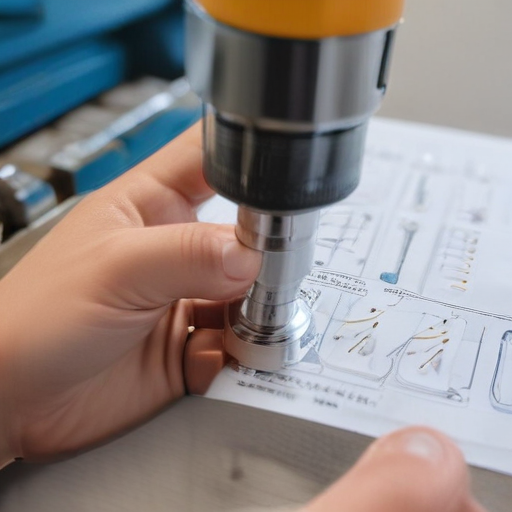
How to use “hydraulic parts near me”
To find hydraulic parts near you, follow these steps:
1. Online Search: Use search engines like Google. Type “hydraulic parts near me” in the search bar. The search engine will use your location to show local suppliers and stores that sell hydraulic parts.
2. Store Locators: Many hydraulic parts manufacturers have websites with store locator features. Visit these sites and enter your location to find the nearest distributor.
3. Local Directories: Check local business directories such as Yelp, Yellow Pages, or similar platforms. These directories often categorize businesses and can help you find specialized stores.
4. Map Services: Use map services like Google Maps or Apple Maps. Enter “hydraulic parts” or similar keywords. These services will display local stores, along with contact information and business hours.
5. Ask for Recommendations: Join online forums, social media groups, or local community pages related to hydraulics, machinery, or industry trade. Asking for recommendations can yield trusted local suppliers.
6. Visit Industrial Areas: Industrial zones and business parks often house specialized parts suppliers. A visit can sometimes be quicker than extensive online searching.
7. Phone Inquiries: Call local industrial supply stores, machine shops, or agriculture equipment providers. They may not heavily advertise hydraulic parts but could have them in stock or know where to get them.
8. Trade Shows & Events: Attend local trade shows, exhibitions, or industry events focused on machinery and equipment. These venues often feature suppliers showcasing their products.
By combining these methods, you can efficiently locate hydraulic parts near you. Remember to confirm stock availability and compare prices to get the best deals.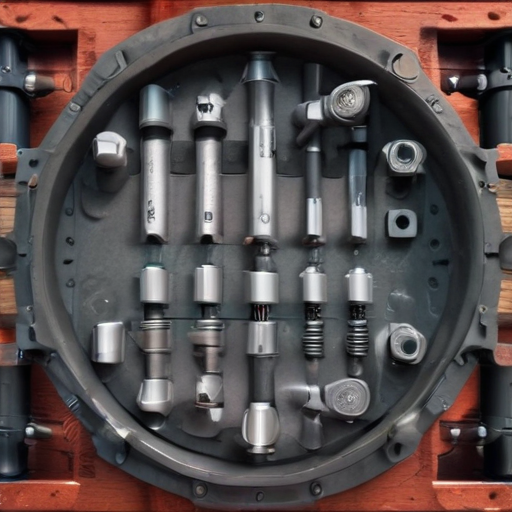
“hydraulic parts near me” Comparative Analysis
When searching for “hydraulic parts near me,” it’s crucial to evaluate several factors to ensure you find the best local suppliers. Key considerations include:
1. Product Range:
– Specialty Stores: Specialized hydraulic supply stores typically offer a wider range of products including hoses, fittings, pumps, and cylinders tailored to various applications.
– General Hardware Stores: While convenient, they often have a limited selection confined to common items.
2. Quality and Brands:
– Specialty Stores: These stores often stock reputable brands known for durability and performance, which is critical for hydraulic systems.
– General Stores: They might carry lower-quality or generic brands that may not withstand rigorous usage.
3. Expertise and Support:
– Specialty Stores: Staff usually possess extensive knowledge and can offer expert advice on installation, troubleshooting, and product compatibility.
– General Stores: Staff may lack specific hydraulic knowledge, which can be a disadvantage when you require detailed support.
4. Availability and Lead Time:
– Specialty Stores: More likely to have items in stock and can often source rare parts quickly through their established supply chains.
– General Stores: Might experience longer lead times for out-of-stock items or specialized parts.
5. Price Comparisons:
– Specialty Stores: Prices might be higher due to the quality and expertise offered but can provide better value in the long run through reduced downtime and maintenance costs.
– General Stores: Typically, offer cheaper options that could be suitable for less demanding applications.
6. Customer Reviews and Reputation:
– Check online reviews and ask for recommendations to gauge the reliability and customer satisfaction of local suppliers.
7. Proximity and Convenience:
– Both store types can offer convenience, but ensure that their location and hours suit your schedule. Some specialty stores might also offer online purchasing with local pickup options.
In conclusion, for comprehensive support and the best quality, specialized hydraulic parts stores generally outperform general hardware stores. However, the final decision should balance product needs, quality expectations, and budget constraints.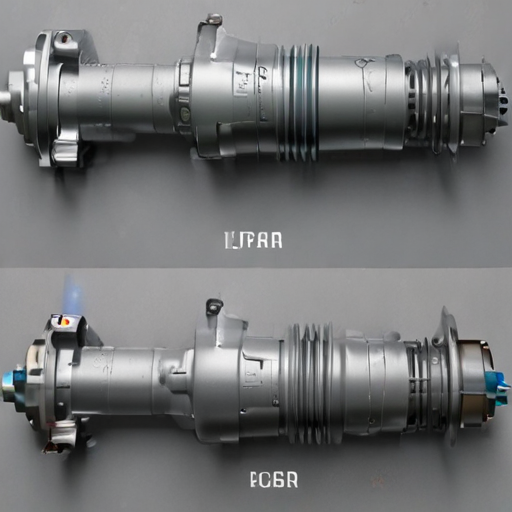
“hydraulic parts near me” Warranty and Support
When searching for “hydraulic parts near me,” it’s essential to consider both warranty and support to ensure you receive reliable and long-lasting components. Here’s a concise guide to help you navigate these crucial aspects:
Warranty
1. Term Length: Verify the duration of the warranty. Standard warranties for hydraulic parts typically range from six months to two years.
2. Coverage: Ensure the warranty covers defects in materials and workmanship. Some warranties also cover premature failure under normal usage.
3. Exclusions: Be aware of common exclusions, such as damage from misuse, improper installation, or lack of maintenance.
4. Claim Process: Understand the procedure for making a warranty claim. This often involves providing proof of purchase and a detailed description of the issue.
Support
1. Technical Assistance: Choose suppliers that offer comprehensive technical support, preferably available during business hours. This can include installation guidance and troubleshooting.
2. Customer Service: Responsive customer support is crucial for addressing any concerns or issues quickly. Look for suppliers with strong reputations for customer service.
3. Local Availability: Opt for suppliers with local branches or authorized dealers, ensuring quick access to parts and support when needed.
4. Replacement Services: Check if the supplier has a quick turnaround for replacing faulty parts to minimize downtime.
Finding a Supplier
1. Online Search: Use search engines and include your location to find nearby suppliers. For instance, type “hydraulic parts near [Your City/Region].”
2. Reviews and Ratings: Check online reviews and ratings to gauge user experiences with the supplier’s products and services.
3. Industry Associations: Refer to industry associations or directories to find reputable suppliers with robust warranty and support options.
By prioritizing warranty and support, you ensure that the hydraulic parts you purchase are backed by quality assurance and reliable service. This can save time and money in the long run, maintaining your equipment’s efficiency and longevity.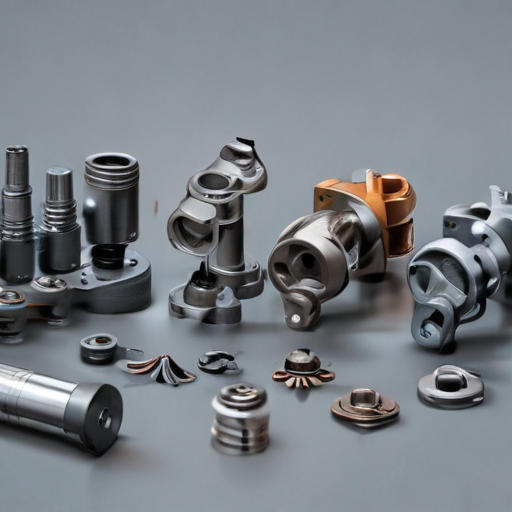
List “hydraulic parts near me” FAQ
Sure, here’s a concise FAQ on finding hydraulic parts near you:
FAQ: Finding Hydraulic Parts Near You
Q1: How can I locate hydraulic parts near me?
A1: Start by searching online using keywords like “hydraulic parts near me” on search engines or map services like Google Maps. You can also check local business directories or industry-specific websites.
Q2: What types of hydraulic parts are typically available locally?
A2: Commonly available parts include hoses, fittings, pumps, valves, cylinders, seals, and filters. Specialized stores may also offer custom machined parts.
Q3: Are there specialized hydraulic parts suppliers?
A3: Yes, many regions have specialized suppliers who focus on hydraulic components and equipment. These suppliers often provide a broader range of products and specialized services like assembly and repair.
Q4: How can I ensure the quality of hydraulic parts?
A4: Look for well-reviewed suppliers with a good reputation. Check for brands known for quality, such as Parker, Eaton, or Bosch Rexroth. Inquire if the supplier offers warranties or certifications for their products.
Q5: Can local suppliers provide custom hydraulic solutions?
A5: Many specialized hydraulic suppliers offer custom solutions, including custom hose assemblies, bespoke cylinders, and system design services. Inquire about their capabilities and past projects.
Q6: Are there any benefits to buying hydraulic parts locally?
A6: Local purchasing can provide quicker access to parts, personalized service, and ease of handling returns or exchanges. It can also support local businesses and reduce shipping times and costs.
Q7: What additional services do local hydraulic suppliers offer?
A7: Many suppliers offer services such as installation, system diagnostics, repair, maintenance, and custom fabrication. Some may provide on-site support and emergency services.
Q8: How do I contact local suppliers?
A8: Most suppliers have contact information on their websites. You can call them directly, email inquiries, or visit their physical store to discuss your needs.
By following these guidelines, you can efficiently find and acquire hydraulic parts from local suppliers to meet your project requirements.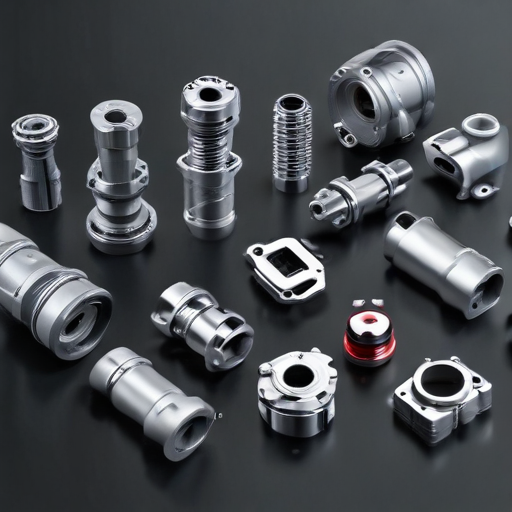
Top 10 FAQ with answer about hydraulic parts near me for Buyer Sourcing from China
1. Where can I source hydraulic parts from China?
– You can source hydraulic parts through online platforms like Alibaba, Made-in-China, and Global Sources, or through direct contact with manufacturers like Hengli, Haihong, or Liyuan.
2. Are hydraulic parts from China reliable and of high quality?
– Yes, many Chinese manufacturers produce high-quality hydraulic parts that comply with international standards. It’s crucial to vet suppliers thoroughly and request quality certifications like ISO 9001.
3. What types of hydraulic parts can I source from China?
– You can source a wide range of hydraulic parts, including cylinders, pumps, valves, hoses, seals, and fittings.
4. How do I ensure the quality of hydraulic parts before purchasing?
– Request samples, visit the factory if possible, ask for quality certifications, and check third-party inspection reports. Also, consider asking for references from other buyers.
5. What are the lead times for hydraulic parts from China?
– Lead times can vary depending on the manufacturer and order size, typically ranging from 4 to 8 weeks. Customizations or large orders might take longer.
6. What are the shipping options for hydraulic parts from China?
– Common shipping options include sea freight, air freight, and courier services like DHL, FedEx, and UPS. Sea freight is cost-effective for large orders, while air freight is faster for smaller, urgent shipments.
7. How do I handle customs and import duties for hydraulic parts?
– Research your country’s import regulations, hire a customs broker, and ensure all necessary documentation (commercial invoice, packing list, bill of lading) is in order. Chinese suppliers often assist with documentation.
8. Is it possible to customize hydraulic parts from Chinese manufacturers?
– Yes, many Chinese manufacturers offer customization services. Share your specifications and requirements clearly, and confirm the feasibility with the supplier.
9. What payment methods are accepted by Chinese suppliers?
– Common payment methods include Wire Transfer (T/T), PayPal, Letter of Credit (L/C), and Escrow services. It’s advisable to negotiate payment terms and ensure transparency.
10. How do I find a trustworthy hydraulic parts supplier in China?
– Conduct thorough research, check online reviews, ask for references, verify certifications, and consider using sourcing agents or third-party inspection services to vet suppliers.

